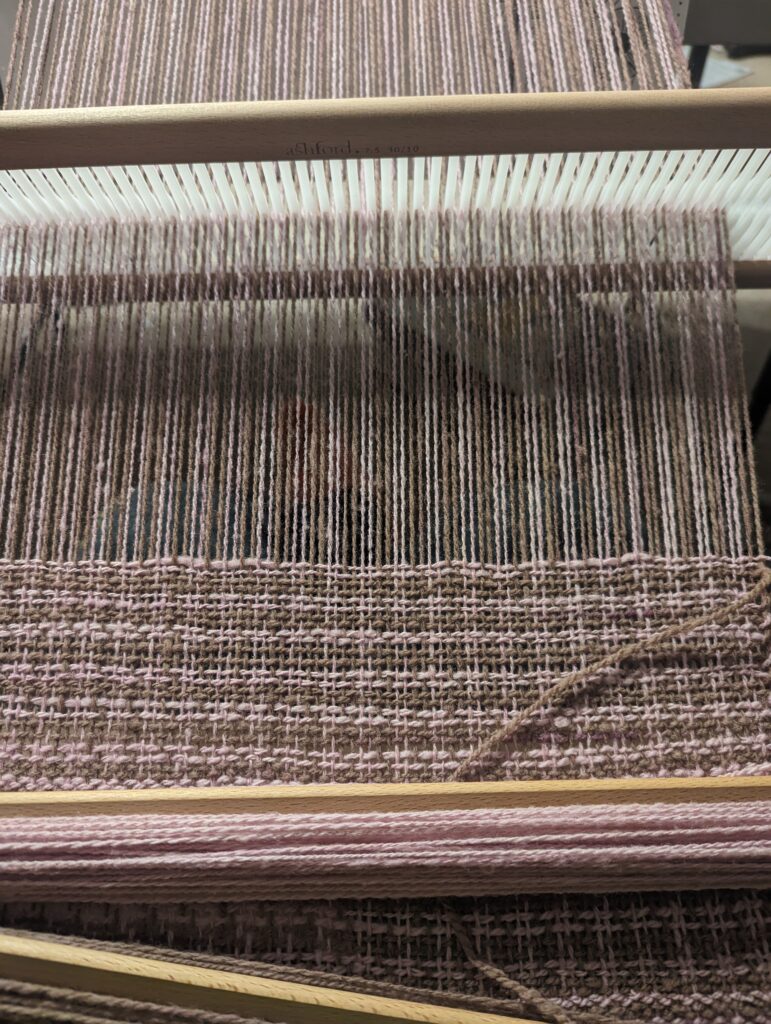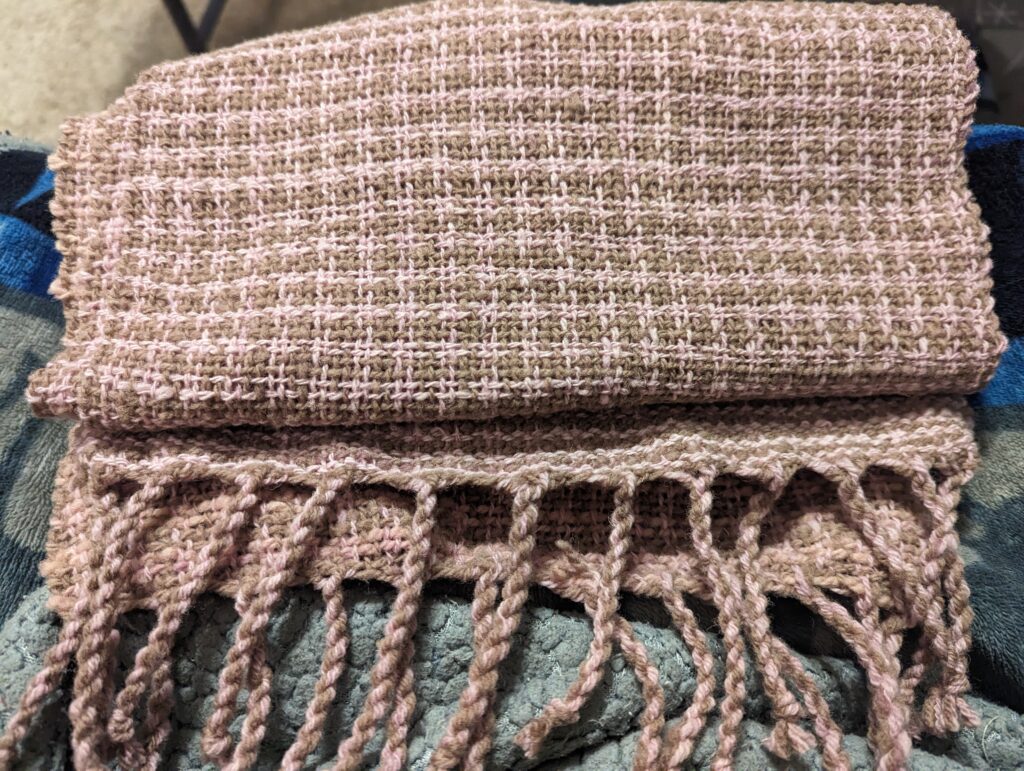
This scarf is woven from a raw fleece that I was gifted last summer. Over the last 6 months I washed, spun, dyed, and wove the wool into this scarf.
When I received the fleece, it was tightly packed into a garbage bag for shipping purposes. It expanded rapidly when I opened the bag. My first step here was to pick out the burrs and other pieces, as well as separating second cuts that would be too short to spin.
After I had finished picking through the wool, I washed it in warm water with scouring detergent, rinsed it, and allowed it to dry. There was a lot of wool and it took several days to dry completely.
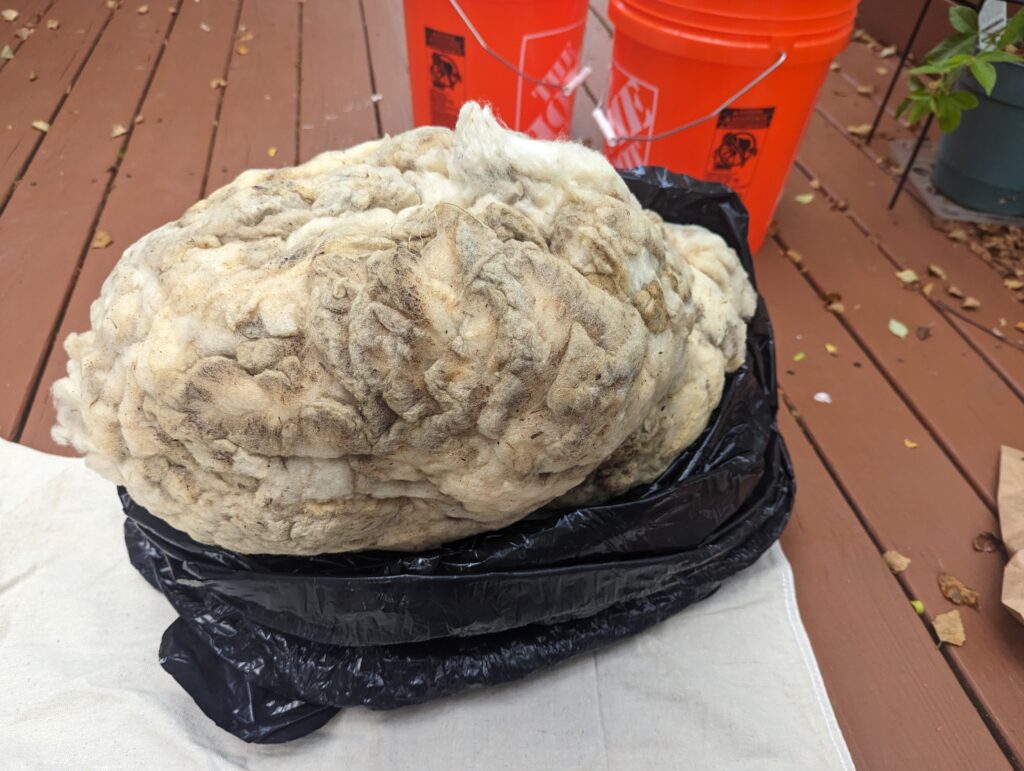


Once the wool was dry, I prepped the wool for combing by pulling the locks.
I tried a few different preparations for spinning before finding one that I found easy to spin. I carded some and spun a bit “from the cloud” before receiving a set of combs for my birthday. The combs worked well and I used a diz to draw the wool off of the combs, creating lengths of fluff that were easy to draft into fine string.
I tried a few different spindles for this project. The one I finally was happy with is a reproduction spindle based on a find in Greenland. I used it supported and this enabled me to get to a very fine gauge.

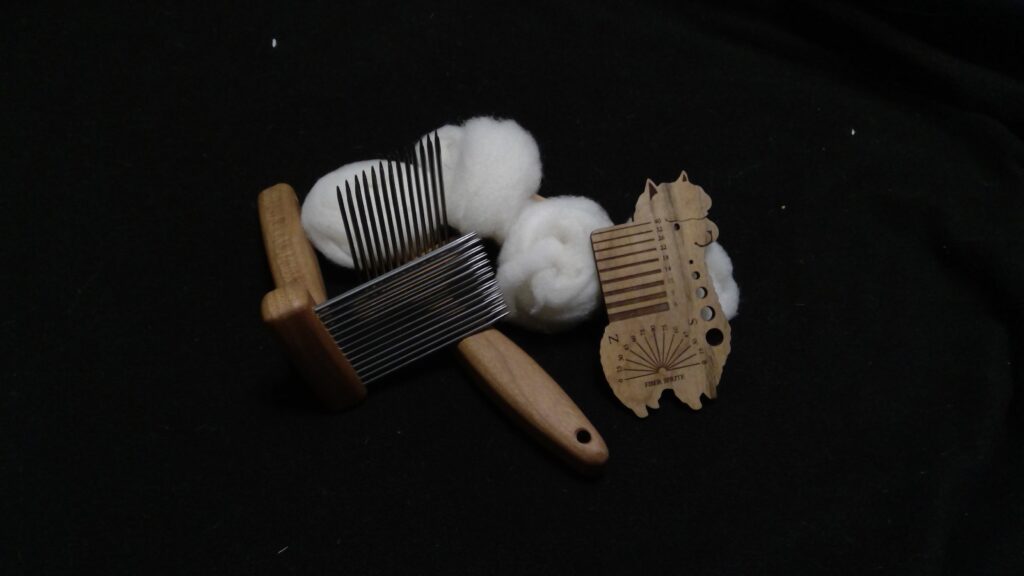
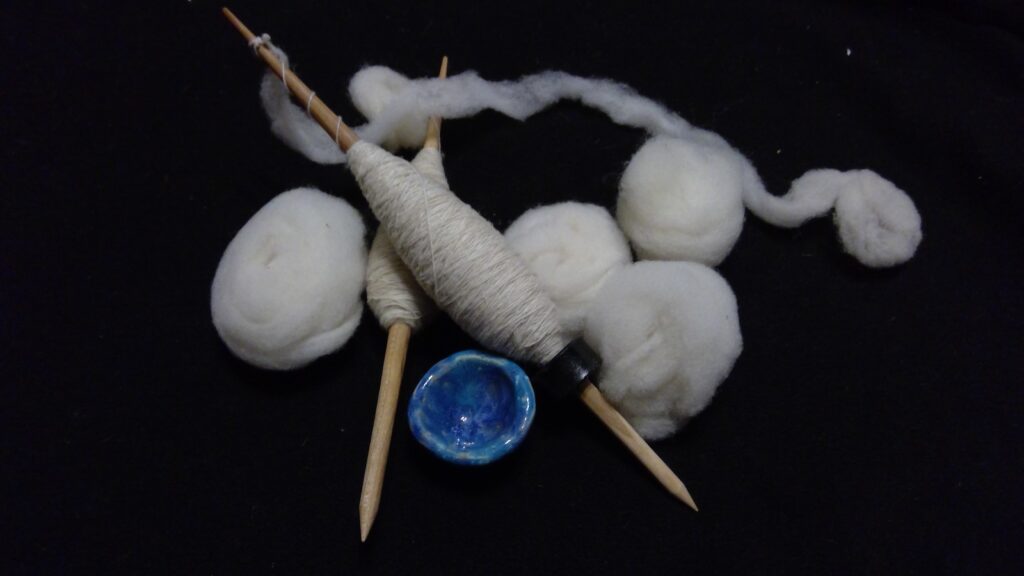
I dyed the yarn using walnuts and lichen that I collected from the local area. Both dyes have enough tannins that a mordant was not needed.
The walnuts came from the soccer field that Shahr Bânû had practice at this past fall. I fermented the walnuts in a bucket of water on the back deck until the squirrels discovered my stash and left drips of walnut stain across the deck. I then took what was left and simmered it on the stove for a couple of hours.
The lichen was fermented in ammonia for about 6 months prior to dying. Some lichens will give purples if fermented for a couple of months, but the variety I collected creates a yellow.


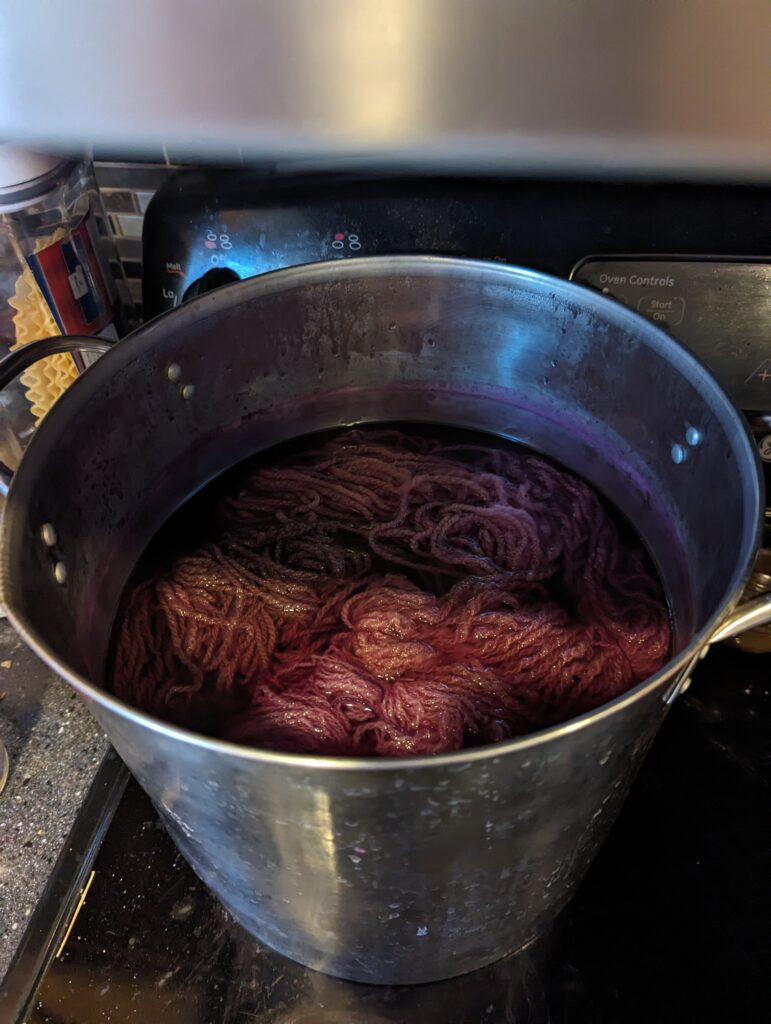
I chose to overdye all of the wool in an exhausted cochineal dye bath. This created a light rose shade.
I warped up my rigid heddle loom in a houndstooth pattern. The weave was reasonably simple, but the yarn is springy, so maintaining tension on the warp was challenging. I did manage to finish without breaking any warp threads.
